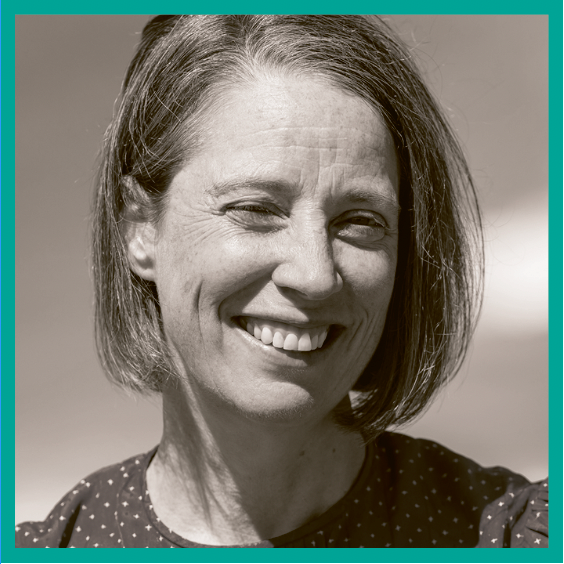Common Ground: 'We need more research'
Welcome to the Flame's new series featuring the issues that unite us in the energy transition. This article is a summary of views, condensed for publication in the June print edition – to read more, simply follow the links for indepth reports on...

Welcome to the Flame's new series featuring the issues that unite us in the energy transition. This article is a summary of views, condensed for publication in the June print edition – to read more, simply follow the links for indepth reports on each subject.
There’s good news for locals united in calling for more research into the impacts of offshore wind. Not only do years of environmental investigation lie ahead but everyone can get involved.
As well as drone tech and satellite tagging, citizen science will play a big role in whale and bird surveys, so we can all look forward to heading to the nearest headland with a deckchair and a pair of binoculars, and declaring it a regional priority.
“It’s going to be a really exciting time for marine science,” said Associate Professor Michelle Voyer, a marine social scientist and Blue Energy Futures Lab (BEFL) spokesperson at the University of Wollongong. “We are going to learn a lot in this time, whether wind farms proceed or not. The key point that we’ve made right from the beginning … is that the science needs to be done independently, as well as by individual proponents.”
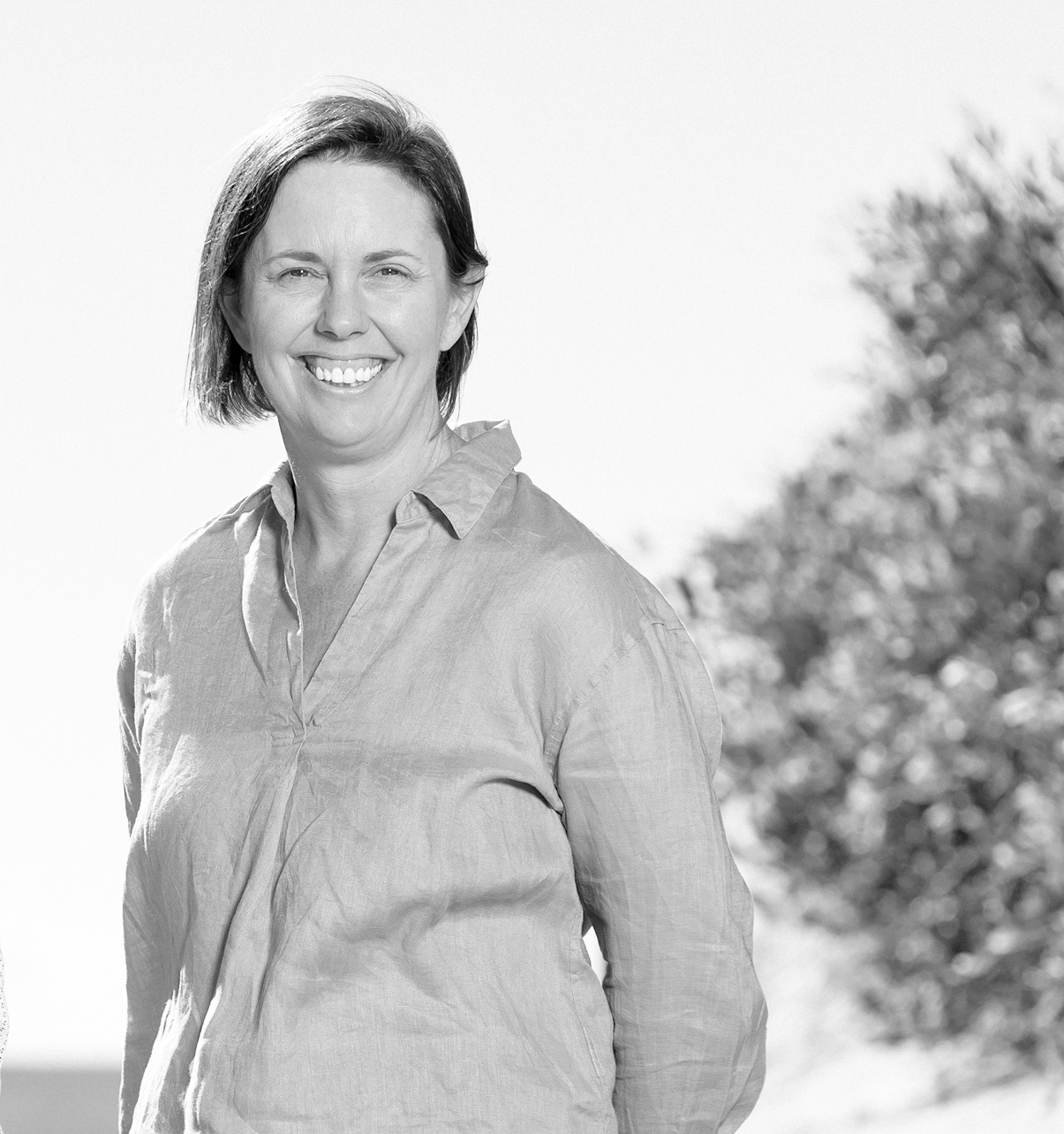
Research required
Regulatory body the National Offshore Petroleum Safety and Environmental Management Authority has listed marine research priorities, but Michelle thinks more could be done.
“We need to begin now with research into the circular economy. So beginning to plan now for waste and decommissioning, reusing/recycling,” she said. “We need to do a lot of work on understanding social values, social connections to place, the emotions and aspirations of local communities, and start this process of co-designing community benefit arrangements.
“There’s also a lot of work that needs to begin straight away in understanding what the impacts are on other users, such as fisheries.”
Research may assess coexistence opportunities.
“Offshore aquaculture development is something that’s been looked at quite a lot overseas, such as co-locating wind farms with fish aquaculture or shellfish aquaculture. Seaweed’s quite an exciting one as well.”
A zone announcement is expected soon, but the 30 academics with “amazing expertise” at BEFL are not yet funded to spring into research. “If you go in half-baked, that’s when you’re going to lose people’s trust, and their trust in the result,” Michelle said.
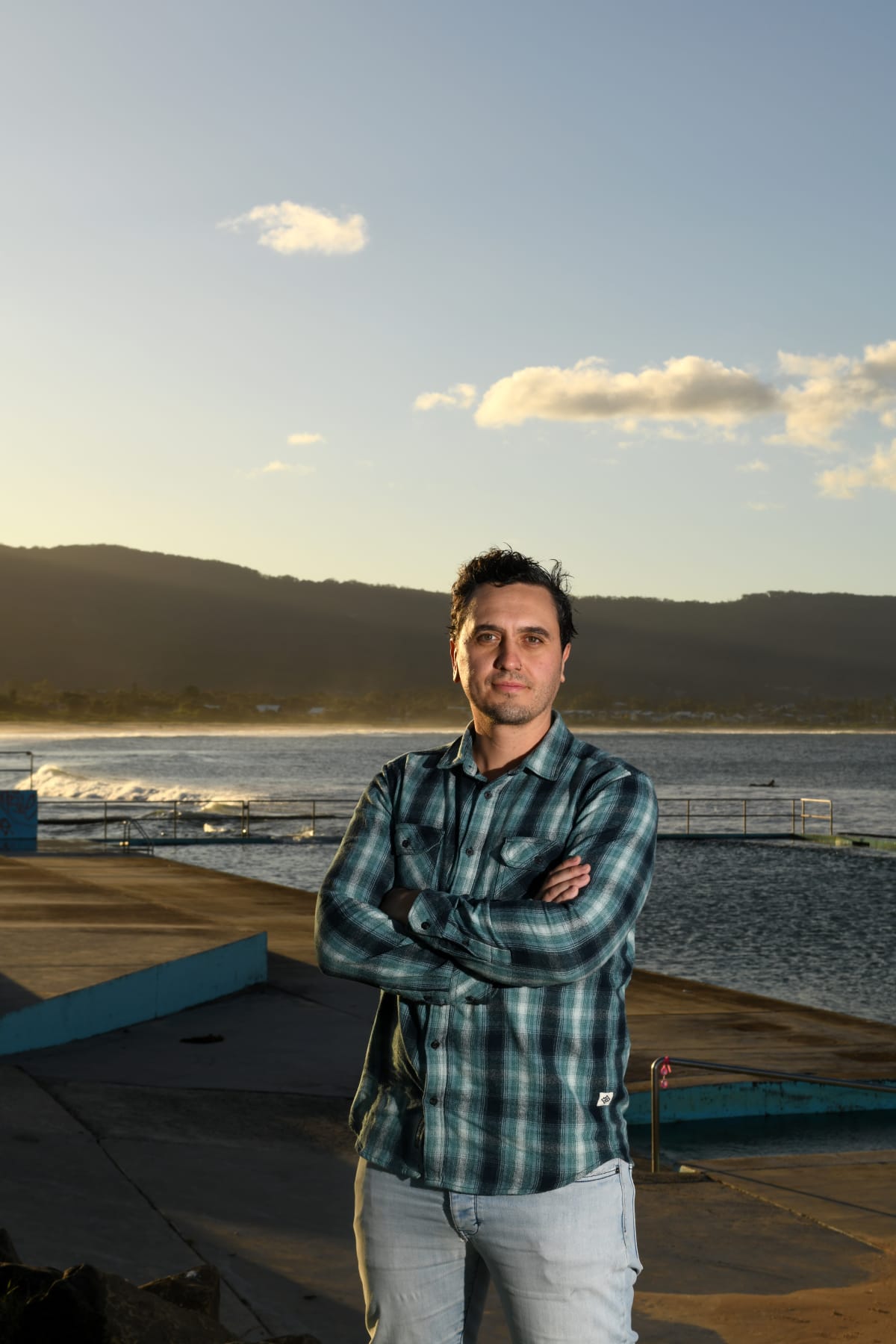
View from Responsible Future
Environmental studies should be undertaken before a zone is declared, said Alex O’Brien, media spokesperson for Responsible Future, a new group standing for “unconditional opposition” to offshore wind turbines in highly sensitive marine ecosystems, like the Illawarra.
“We’ve completed internal polling with our supporters and by far the number one issue was the impact a wind farm would have on the environment,” Alex said.
“It wasn’t the view, it wasn’t a NIMBY attitude, it wasn’t that they didn’t like renewables or didn’t believe in climate change – it was simply the impact on the environment.”
Responsible Future (Illawarra Chapter) Inc. is an advocacy association with a committee of nine volunteers. About 250 people attended its first public meeting in Unanderra on April 30.
“We are supported by 16,000 people across multiple social media pages as well as stakeholders in the community including impacted businesses and further supported by politicians across the political landscape,” Alex said. “These include family-run businesses in commercial fishing and tourism operators that employ hundreds of locals, whose jobs are at risk.”
The group’s vice-president, local teacher Amanda De Lore, said: “We have strong credibility in the community.
“We’ve been made out to be all sorts of ridiculous things – coal lovers, Trump supporters; that we’re funded by coal and gas. We are funded by the people and businesses that live in this area. Because they want transparency, they want truth. They want to know what is actually going to happen out there and how it’s going to impact them, their environment and their economy.”
Of the three choices of funding for research – industry, government or philanthropy – Amanda said “philanthropy would be wonderful but the reality is government needs to be the one to fund the research and it should not be the developers”.
Alex said: “You have got to take the conflict of interest out of the environmental impact studies.”
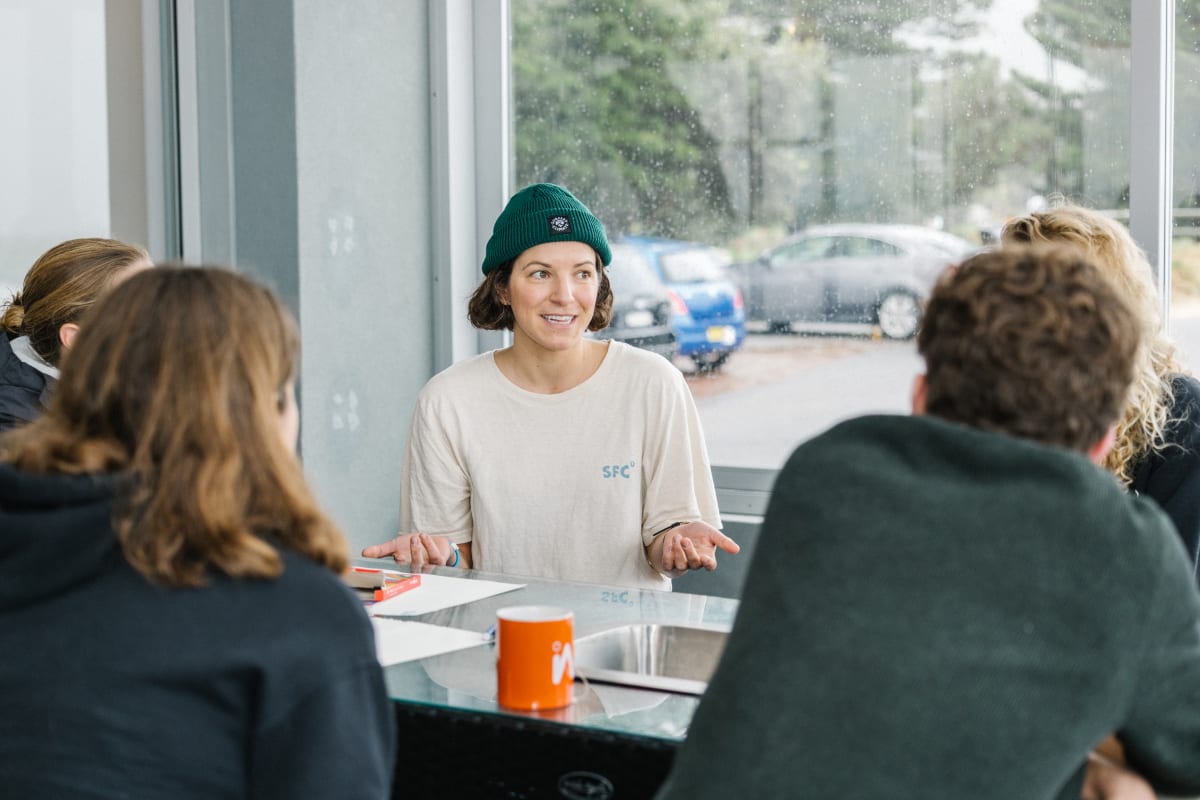
View from Surfers for Climate
Coco Venaglia, the campaigns manager for Surfers for Climate, finds the idea of common ground between offshore wind groups “really interesting”.
“We’re asking for the same things,” she said of calls across the board for environmental research.
“Surfers for Climate is asking for the federal government to include an independent environmental assessment process … That means that government would potentially fund something like CSIRO or local universities to do a proper environmental map of the avian and marine area and ecology, so that it’s not left in the hands of proponents, which we know hasn’t worked in offshore oil and gas.”
On May 11, Coco ran an Illawarra Youth Climate Leadership Summit for 28 people aged 14 to 25 at Thirroul Surf Club. The event – which opened with a talk by renowned climate scientist Professor Tim Flannery – brought together Coco’s passion for helping young people and the environment. A Wollongong local who has spent a decade working in children’s rights, Coco is also one of the founders of Good for the Gong, which became an incorporated association in late 2023.
On who should pay for offshore research, Coco said: “For me personally, I’m totally fine with my taxes paying for proper environmental research. I’m all for it. Wherever the money’s coming from, it just needs to be independently led.”
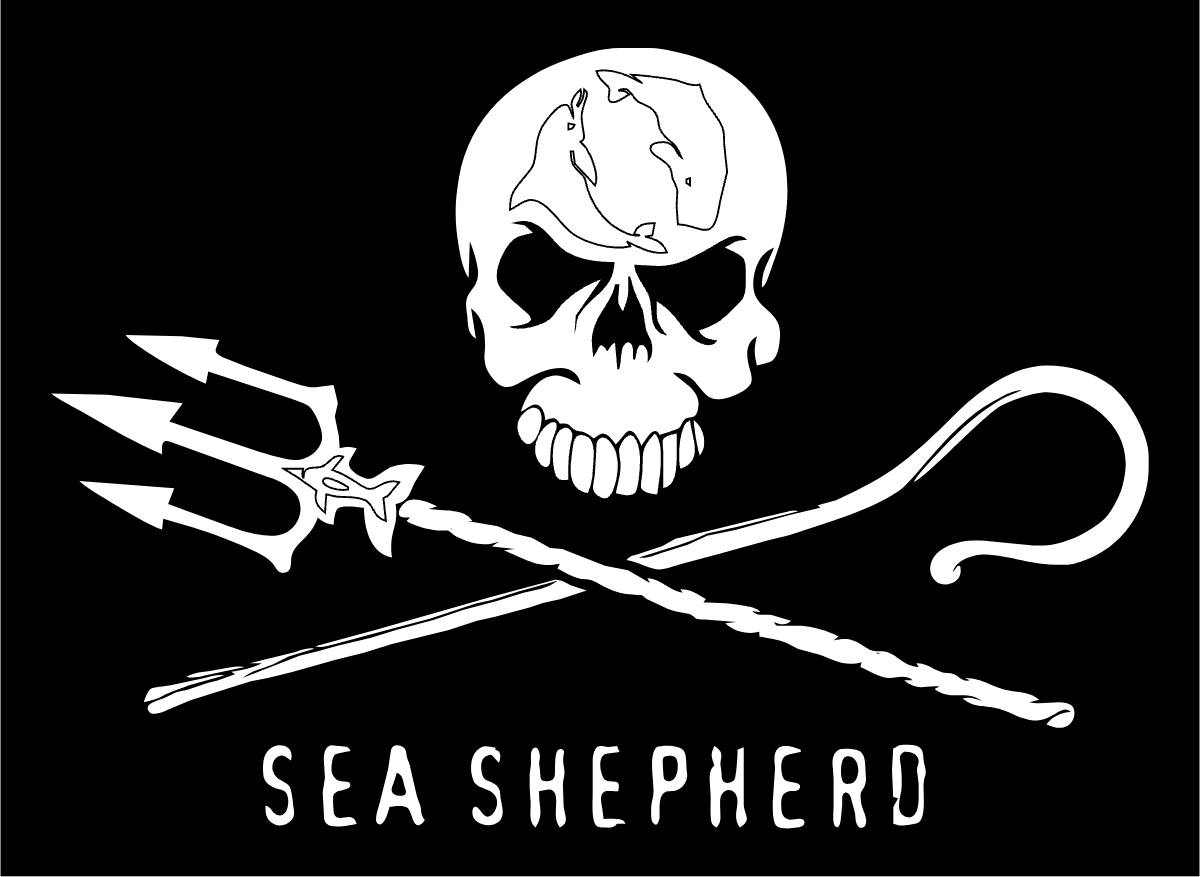
View from Sea Shepherd Australia
Sea Shepherd is one the world’s most respected defenders of the ocean, so many people have looked to the organisation for leadership in the offshore wind debate. John Corker, a Sea Shepherd Australia (SSA) National Advisory Panel member, said the need for research is now urgent.
“Sea Shepherd Australia starts from a position that our changing climate is one of the greatest planetary challenges currently being faced, and which impacts all species,” John said.
“On balance, SSA is prepared to support the use of technologies and methods of OSW construction and operation that avoid and/or minimise adverse impacts on marine life as well as birds and bats transiting the OSW areas but this must be carefully considered on a site by site basis.”
Sea Shepherd Australia is especially concerned about the impact of underwater cables and noise.
“For the Illawarra we noted in our submission that the Australian East Coast Migration Corridor has been recognised as an important marine mammal area for the Humpback whale and other marine species. The potential whale migration path through this proposed zone is considerable.”
Government promises strict legislation
Cunningham MP Alison Byrnes said any approved offshore wind projects will be subject to strict legislation.
“The Albanese Labor Government has already been investing in marine research like that of Dr Jodi Edwards’ ‘Unbroken Whispers’ project,” she said.
This $300,000, two-year project will collect Indigenous knowledge about whales, orcas and dolphins.
Alison also said $96.6 million has been allocated to support “robust” environmental approval decisions for renewable energy, transmission and critical mineral projects.

